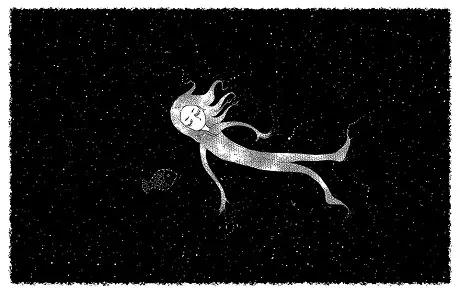Do You Record Your Dreams? Dreams Can Boost Creativity, Inspire Brilliant Ideas

If bestselling authors and celebrated scientists are any indication, then we should all take our dreams more seriously. Dreams can birth our most brilliant and inspirational creative ideas.
Stephen King revealed that his blockbuster psychological horror novel "Misery" was originally a dream (more like a nightmare, really) that he had on an airplane:
“[I] dreamt about a woman who held a writer prisoner and killed him, skinned him, fed the remains to her pig and bound his novel in human skin. His skin, the writer's skin. I said to myself, 'I have to write this story.' Of course, the plot changed quite a bit in the telling. But I wrote the first forty or fifty pages right on the landing here, between the ground floor and the first floor of the hotel."
Similarly, Scottish author Robert Louis Stevenson wanted to write about the dual life of a man, but had no idea how to go about it. He was frustrated that no plot was presenting itself to him. But then he closed his eyes and "The Strange Case of Dr. Jekyll and Mr. Hyde" was born. Stevenson says:
“On the second night I dreamed the scene at the window, and a scene afterwards split in two, in which Hyde for some crime, took the powder and underwent the change in the presence of his pursuers.”
Bestselling young-adult fiction writer Stephenie Meyer also has one particularly vivid dream to thank for her vampire romance series, "Twilight." She explains:
“It was two people in kind of a little circular meadow with really bright sunlight, and one of them was a beautiful, sparkly boy, and one was just a girl who was human and normal, and they were having this conversation," she told Oprah in 2009. "The boy was a vampire, which is so bizarre that I'd be dreaming about vampires, and he was trying to explain to her how much he cared about her and yet at the same time how much he wanted to kill her.”
Meyer wrote her dream down, she said, because it was so different from her every day, stay-at-home-mom life that she wanted to hold on to it. “I just wanted to remember it so badly. That’s why I started writing it down—not because I thought this would be a great story for a novel.”
Niels Bohr, the father of quantum mechanics, also often spoke of the inspirational dream that led to his most revolutionary discovery of the structure of the atom.
Even Albert Einstein, famous for his genius ideas, also credited many of those insights to his dreams. "Einstein's Dreams" is a fascinating read about the collage of stories Einstein dreamed in 1905 on the brink of his breakthrough discoveries.
Dreams are not mere fantasies or illusory ideas
As you can tell from these examples, dreams have been responsible for some major creative and scientific discoveries. Psychologists actually now recognize dreams as ongoing thought processes that just happen to take place while we are asleep, and not mere fantasies or illusory ideas.
If you don’t write down your dreams, you might never know what profound thoughts are happening underneath while you are asleep, and what impact those thoughts might have on your waking life.
If you have trouble remembering dreams, just be patient with yourself. Don’t pressure yourself to dream or recall dreams because that will only exasperate the situation and leave you feeling more frustrated.
Dreams come around in their own sweet time. When they come, try lucid anchoring to capture them.

Lucid anchoring comes from the fascinating branch of psychology called Neuro Linguistic Programming (NLP). Just before you fall asleep, choose an item that you can see clearly from your bed. It can be a prominent picture hung on the wall, for example. This will be your anchor.
Gaze at this picture when you go to sleep, wake up during the night and first thing in the morning. When you look at the picture, say to yourself out loud: "I will remember my dreams." That phrase acts as a trigger for your subconscious mind to associate the picture with remembering dreams. It’s a statement of intent that instructs your mind to focus on your dreams and remember them.
Look at that picture several times each night to remind your subconscious mind to remember dreams. It’s also advisable to keep a book light or pen with a light attached to it on hand for recording the most vivid images or emotions that come to you in a dream right in the middle of the night, upon awakening.
Don’t trust you will always remember your dreams in the morning. Dreams are quite fleeting. Most get lost shortly after we have them, often after only a few hours or a few days at most. So, to avoid forgetting amazing dreams and losing brilliant ideas, record dreams as soon as you can.
Benefits of recording your dreams in a dream diary
The beauty of recording dreams in a dream diary is that you can preserve and vividly see all over again details of your subconscious thoughts. That means you can always bring to the fore and know what exactly was/is going on in your subconscious mind. Knowing what your deepest thoughts are is always fascinating and enlightening.
Moreover, when you write your dreams down, come back to read them later and recall all those wonderful thoughts you had, it engages different parts of the brain and triggers your mind to think in a totally different way that you might not otherwise have thought. That is almost always a good thing, especially for getting your creative juices moving again when you’ve hit a creative block. It can inspire creativity and lead to brilliant discoveries—some that you may never have thought you could come up with.
Besides, just being able to look back on a dream later and think, "Ah, what an interesting thing" or "Geez that was weird" can be a lot of fun. For many people, this is enough reason in itself to keep a dream diary.

























